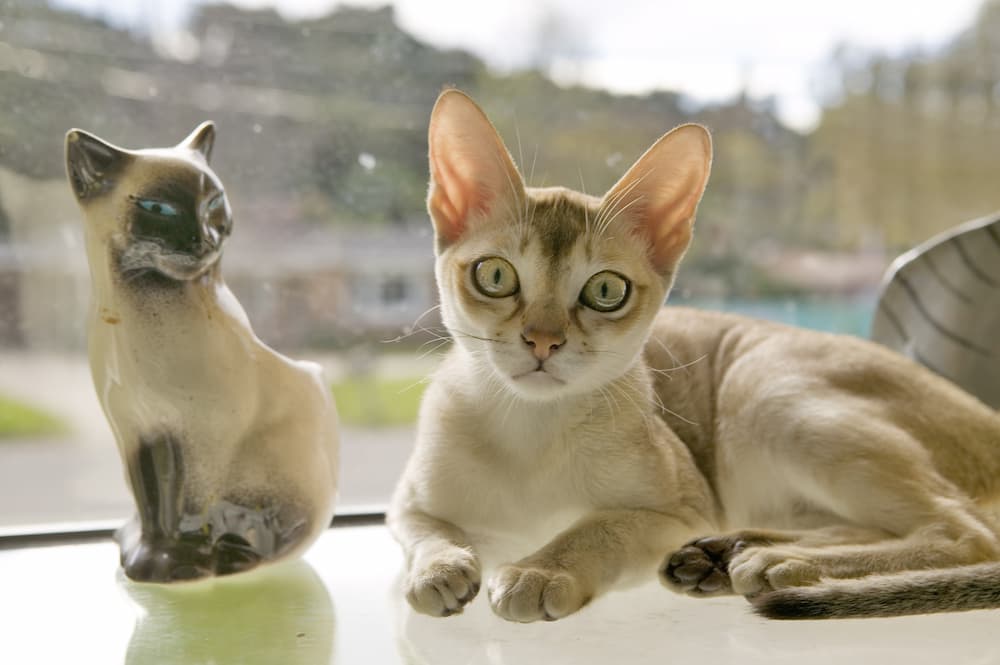For those of us blessed with the companionship of a feline friend, the litter box is a necessary part of our lives. But when the scent drifting from it reminds us more of a chemistry lab than a cozy cat corner, it’s time to investigate why. Ammonia odors from a cat’s litter box aren’t just a smelly inconvenience; they can be a red flag for possible health concerns. It’s essential for us, dutiful cat parents, to understand why the cat litter box smells like ammonia and how to fix it, ensuring the well-being of our beloved pets and the freshness of our homes.

What is Ammonia?
Ammonia is a compound of nitrogen and hydrogen, known for its pungent odor. It’s used in several household cleaners and is present in nature, but it can be harmful in high quantities. If you’re detecting a sharp, ammonia smell from your litter box, it’s a sign that something’s amiss in your cat’s loo. Health problems can arise from exposure to this potent aroma, be it the two-legged or four-legged members of your household taking the hit.
The Relationship Between Cat Urine and Ammonia
Interestingly, when freshly expelled, cat urine doesn’t come with a strong odor. It’s quite benign, really. This is because it contains urea, which is odorless. However, once it begins its residency in the litter box, bacteria start to break the urea down, converting it into ammonia. This chemical transformation is the source of the sharp, unmistakable odor we associate with a neglected litter box. It’s a natural process, but knowing this doesn’t make the scent any more welcome in our homes or any less harmful to our noses and our furry friend’s health.
Several factors can turbo-charge this ammonia factory. Firstly, the concentration of urine plays a big role; more concentrated urine (often a result of inadequate hydration) will produce a stronger smell. The type of litter you use also has a say in this. Some litters are better at absorbing and neutralizing odors than others. How often you clean the box is critical too – letting it sit for too long is practically an invitation for that ammonia smell to set up camp in your home. Lastly, environmental conditions like humidity and temperature can accelerate the breakdown process, leading to a quicker build-up of that pungent ammonia smell. As cat lovers, it’s our job to keep these factors in check to maintain a pleasant living environment for both us and our purring roommates.

Health Risks of Ammonia in the Cat Litter Box
While we may wrinkle our noses in distaste, the real concern is the health risk.
Ammonia, while just a bad scent to us, can spell real trouble for our whiskered comrades. Being closer to the source, our feline family members are at a heightened risk. Continuous exposure to ammonia can lead to respiratory issues in cats, such as bronchitis or asthma, particularly in those tiny, sensitive lungs. Apart from respiratory distress, the noxious smell can deter our fussy friends from using the litter box altogether, leading to unwanted accidents and behavioral changes. It’s crucial to maintain a clean, ammonia-free litter box, not just for the comfort of our homes but for the health and happiness of our beloved pets.
For us humans, sharing a space with an ammonia-laden litter box is much more than an olfactory offense—it poses health risks too. Long-term exposure to ammonia in the air can irritate the throat, nose, and eyes, leading to discomfort. For people with pre-existing respiratory conditions like asthma, it can worsen symptoms and even cause more serious health problems over time. It’s in our best interest, and that of our furry family members, to keep the litter box clean and monitor the hydration and diet of our cats closely, ensuring a happy home free of harmful ammonia odors.

Tips for Reducing Ammonia Odor in Cat Litter Boxes
Addressing the ammonia smell in your cat’s litter box doesn’t have to be a daunting task. Here, we will explore simple yet effective strategies to minimize this pungent odor, ensuring a healthier and more pleasant environment for both you and your feline companion.
- Keep It Clean: Scoop daily, and change the litter regularly.
- Quality Litter Matters: Select a litter that neutralizes odor and clumps well.
- Air It Out: Make sure the litter box area is well-ventilated.
- Hydration Is Key: Encourage your cat to drink plenty of water, as concentrated urine can smell stronger.
- Consult Your Vet: If a strong ammonia odor persists, despite your efforts.
Conclusion
If the litter box smells like ammonia, it’s a sign to up your cleaning game, reassess your cat’s hydration, and maybe invest in a better litter. Keep a close eye on your feline’s health, consult your vet if the issue persists, and your olfactory challenges should be resolved post-haste. Here’s to happy cats and fresh-smelling homes!
The Catington Post is reader-supported. That means, if you make a purchase through links on our site, we may earn an affiliate commission. All images and names which are not the property of The Catington Post are the property of their respective owners.







